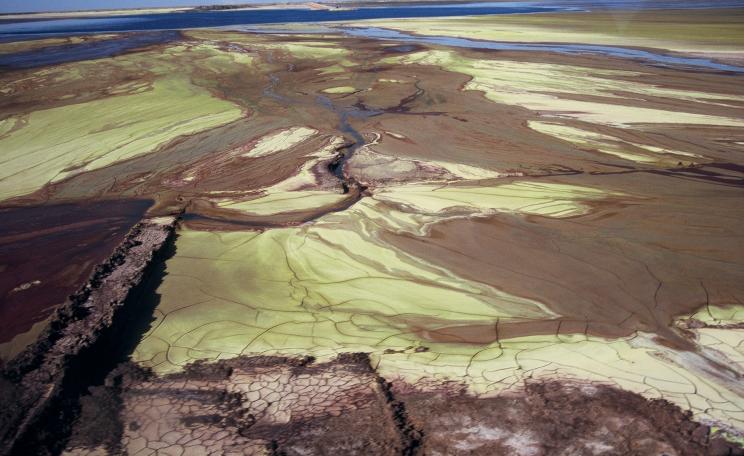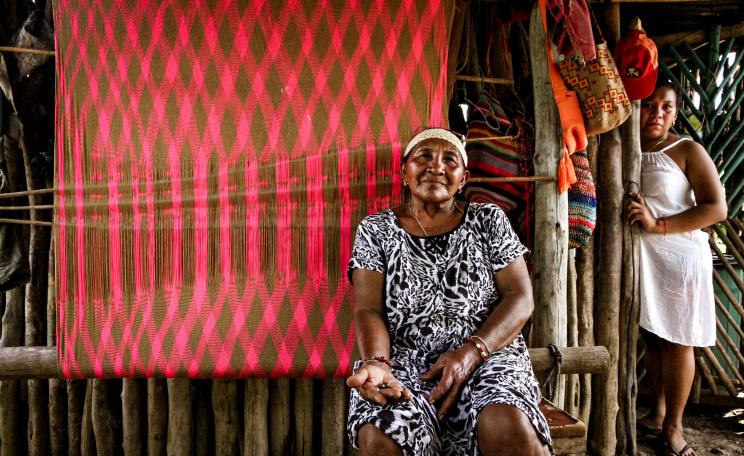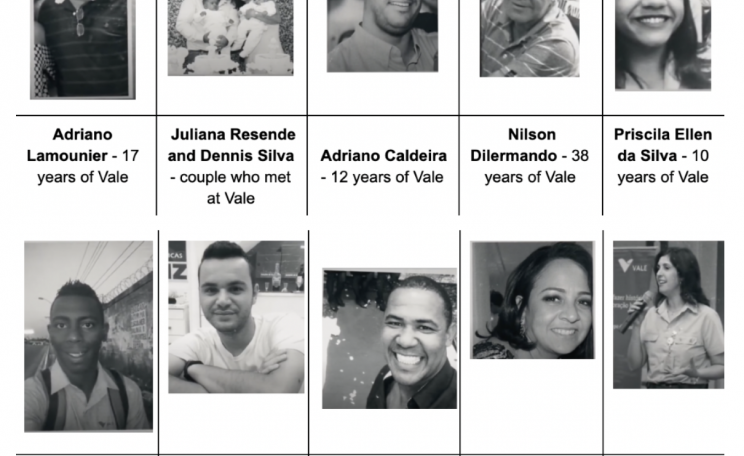BHP says all the right words, but its recent history shows it has yet to follow through.
BHP is the world’s largest mining company. It has 30 operations across 13 countries and is valued at a staggering $129.3 billion. It's London AGM took place last week, coming shortly after its ‘shareholder engagement session’ in late September and a day after its Australian AGM.
In recent years the company has been keen to stress its credentials as a responsible, sustainable mining company with a key role to play in a future, greener, economy. BHP’s website prominently lists sustainability, integrity and accountability as being key values of the company, and no doubt these themes will structure much of the presentations and discussions at today’s AGM.
However, to environmentalist and human rights groups monitoring the impacts of BHP’s mining operations around the world, it is impossible to see the company’s claims as anything other than greenwashing propaganda. BHP says all the right words, but its recent history shows it has yet to follow through.
Waste
After the catastrophic collapse of the Fundão tailings dam in 2015, BHP and their co-owners Vale entered in to ‘Framework Agreement’ with Brazilian authorities.
This formed a foundation that promised remediation and compensatory programmes to restore the environment and re-establish local communities devastated by the tailings spill.
With the fifth anniversary of the disaster fast approaching, not one of the promised 355 promised new homes has been constructed. The Movimento dos Atingidos por Barragens (Movement of People Affected by Dams) describes the fact that those made homeless by the disaster still live in temporary accommodation as “a disgrace”.
It is difficult to reconcile this lack of action with BHP’s claim to be “doing what is right and doing what we say we will do.”
Water
Claims to sustainability and accountability are also tested by cases in South America.
In Chile, BHP’s Cerro Colorado mine has exceeded its water allowance by almost three times that it was authorised to use. This has resulted in potentially irreversible damage to lakes and wetlands as well as the destruction of livelihoods for those who relied on this water.
BHP says all the right words, but its recent history shows it has yet to follow through.
At the 2019 AGM, BHP’s chairman claimed he was proud of BHP’s work and the fact that groundwater extraction was being reduced.
The lack of time-frame attached to this reduction seems to fall short of BHP’s claims of “...accepting responsibility and delivering on our commitments”, especially as Chile continues to experience a megadrought.
Coal
In Colombia, BHP is a one third owner of the Cerrejón coal mine. Although the company has made clear its intentions to sell its stake in the mine, since the year 2000 BHP has been a part of the operations and expansion of the site and cannot be allowed to dodge its responsibilities.
Cerrejón’s operations have resulted in environmental damage and rights violations around the right to water and the displacement of local communities.
Despite its own commitments to human rights, BHP continues to distance itself from Cerrejón’s actions, including its failure to comply with legal orders from the Colombian Constitutional Court.
As recently as September 2020, a United Nations Special Rapporteur on human rights and the environment called for some of Cerrejón’s operations to be halted in order to protect local Indigenous communities. The min rejected the UN allegations and BHP have shown no sign of taking them any more seriously.
Sacred sites
Given the recent negative press received by Rio Tinto over its destruction of the Juukan Gorge site, it’s unsurprising to see BHP trying to reaffirm its commitments to protecting Indigenous heritage sites.
However, the case of the Resolution Copper mine in Arizona, USA show the limit of these commitments. The planned mine would require the destruction of over 2000 acres of National Forest, including land that is sacred to local Apache people.
Despite an ongoing campaign by environmentalists and indigenous activists to protect the area, BHP and their partner in the venture, Rio Tinto, continue to push for the construction of the mine.
Window-dressing
The way BHP has chosen to structure this year’s AGM events suggests that openness to criticism and transparency are not its top priorities. Andy Whitmore, co-chair of Trustees at London Mining Network attended 14 October’s online AGM session.
He said: "The on-line BHP AGM session, which I attended, was a master-class in how money and power can control the narrative.
"While understanding why a physical meeting isn't currently possible, the format allowed BHP to completely choreograph the meeting.
"They selecting questions, read them for questioners, and - with everyone else muted on the other end - denied any chance for response.
"This sterile echo-chamber is a mockery of shareholder democracy, and raises concerns of how this may set precedents for a lack of meaningful future engagement".
Accountability
Given the recent knighting of former BHP CEO Andrew Mackenzie (tenure 2013-2019), it seems as though BHP is winning in its efforts to portray itself as an ethical, responsible company.
It continues to do environmental and human harm across the globe, to receive praise even when it fails to meet its own standards and to ignore the communities it damages.
London Mining Network is asking activists, members of the public and potential investors to write to BHP on the day of its AGM with messages of support and solidarity for mining affected communities in order to amplify their voices.
Until they take notice of these voices, BHP can not begin to be the company it makes itself out to be.
This Author
Saul Jones is the communications coordinator of the London Mining Network. London Mining Network is a network of organisations that exists to hold London-based mining companies to account by working closely with mining-affected communities. It conducts research on mining and alternatives, and are working to make issues of extractivism more relevant through education, outreach and events. Visit LMN's website to find out more.





